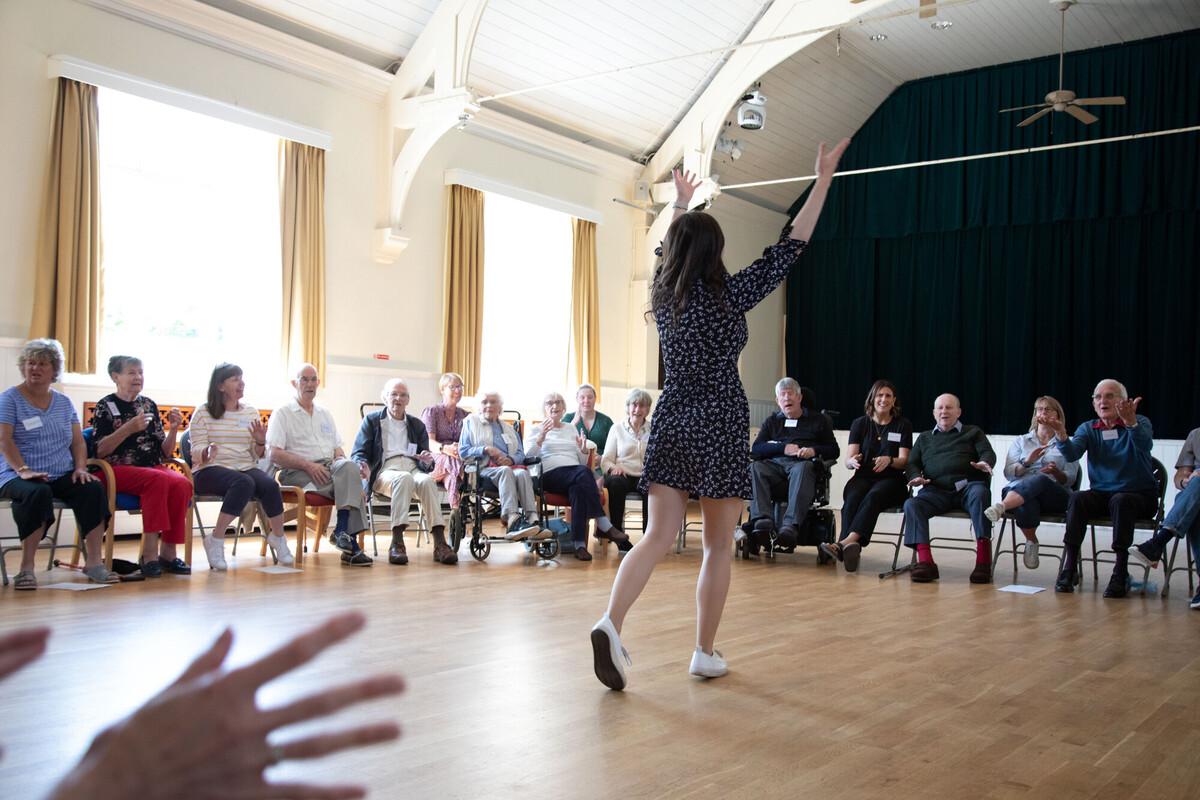Alex Barker, AbilityNet's Disability Consultant, answers some of the commonly asked questions about using a computer after a stroke.
AbilityNet provides a range of services to help anyone living with a disability or impairment to use technology. This could be supporting them at home, at work or in education.
You can find a list of their services at the bottom of this article.
Common questions about using a computer after a stroke
There are many potential challenges that stroke survivors face when using a computer. We asked Alex Barker, AbilityNet's Disability Consultant, to put together a list of common challenges and their solutions.
If there is a particular section you would like to read, you can click on any of the below links to be taken to that section. Or you can keep scrolling to read them all:
- Affected vision: making the text bigger
- Muscle weakness and typing: finding the right keyboard
- Hitting the wrong keys: more alternative keyboards
- Mouse speed: slowing things down
- Online forms: guidance and practice
- Internet safety: tackling your fears
- Communication difficulties: tools to read text out loud for you
Affected vision: making the screen or text bigger
Question: I’ve recently suffered a stroke, and it’s affected my vision. Can I make on-screen text bigger?
There are a few options available if you are finding it difficult to see what is on your screen.
Both Windows and Apple computers, as well as smartphones, have built-in magnifiers to make seeing the screen that much easier. In addition to generally magnifying the screen, you might find it useful to make the text bigger on the screen.
If these options do not help, you might find using a smartphone with either Google Assistant or Siri to be very useful as it gives you speech feedback.
Muscle weakness and typing: finding the right keyboard
Question: Following my stroke, my muscles are weak, in particular in my arms, which makes it difficult to type for long periods. What do you recommend?
It may be that a standard keyboard isn't right for you. There are many different keyboards available. This includes options for people who have weakness or loss of movement on one side of their body.
Sometimes it is hard to hold down two keys at once, especially when you want to hit a capital letter. In this instance, it might be useful to use Sticky Keys.
For more information on adapting your keyboard and mouse search our free tool My Computer My Way
Hitting the wrong keys: more alternative keyboards
Question: I have issues with hitting the wrong keys on the keyboard - is there anything out there that can help me?
As we said in the previous section, there are a lot of alternative keyboards available. Some of these were designed to address this particular issue.
Some have larger keys so that it’s easier for someone to identify and hit the key they want. Some keyboards are tiny, so this makes them easier to use for someone with reduced mobility.
There is also something called a keyguard that makes it harder to hit two keys at once. There is even a keyboard with a built in keyguard.
Mouse speed: slowing things down
Question: I find it challenging to use the mouse as it is too fast for me. Can you tell me how to slow it down?
Changing the speed of the mouse as it moves across the screen can make it easier to use.
You can quickly slow the mouse down by going into Ease of Access within the Windows Control Panel. From there you can configure the speed of your mouse to your requirements.
You can do the same on a Mac by opening System preferences and clicking on the Mouse options.
Online forms: guidance and practice
Question: My Dad now has difficulties filling out online forms. What can be done to help?
Many people with aphasia struggle to fill in online forms.
The Stroke Association has created an activity that will guide you through filling in an online form. This way you can learn about different types of forms and practice filling them in.
You can follow this link to find out more: Form filling activity.
Internet safety: tackling your fears
Question: My Grandma has had a stroke and she feels scared of using the internet. How can I help her?
You can find some good tips for keeping safe online on My Stroke Guide. These were written as part of Safer Internet Day, but it is a good idea to keep safe every day of the year!
If you have any particular concerns you can also call the AbilityNet Helpline.
Communication difficulties: tools to read text out loud for you
Question: My husband has had a stroke and is finding it difficult to communicate. Are there any technology tools that can help us?
Software such as Natural Readers for Windows computers or Select to Speak for Mac devices can certainly help read out small pieces of text.
There are also a lot of dedicated communication software packages available if your needs are greater. One example is Proloquo2go, and another app is Tap to Talk,
Using a tablet computer or smartphone may also help as they also include Virtual Assistants. These can respond to commands and dictate messages. Examples of Virtual Assistants include Siri, Google Assistant, or Cortana.
Take a look at AbilityNet's webinar about How to Control Your Computer With your Voice for more details about the options.
We would always say that getting the support of a speech and language therapist or other health professionals would be very useful.
Access our FREE factsheet, which talks about useful communication aids.
If you'd like to find out more about AbilityNet, you can find out more here. Below is also a list of their services:
- Call AbilityNet's free Helpline. Their friendly, knowledgeable staff will discuss any kind of computer problem and do their best to come up with a solution. They are open Monday to Friday from 9 am to 5 pm on 0800 048 7642.
- Arrange a home visit. AbilityNet have a network of volunteers who can help if you have technical issues with your computer systems. They can come to your home, or help you over the phone.
- AbilityNet also have a range of factsheets that talk in detail about technology that might help you. These can be downloaded for free. You may find their factsheets about voice recognition and keyboard alternatives useful.
- My Computer My Way. A free interactive guide to all the accessibility features built into current desktops, laptops, tablets, and smartphones.
For detailed information how AbilityNet could help you, please read their FREE factsheet on stroke and computing.
Other blogs in this category

Community, connection and coping - support for your mental health after stroke
Having stroke can impact on your daily life, relationships, and…
Learn more

Feelings of grief after a stroke
The process of coming to terms with a stroke diagnosis can be…
Learn more
